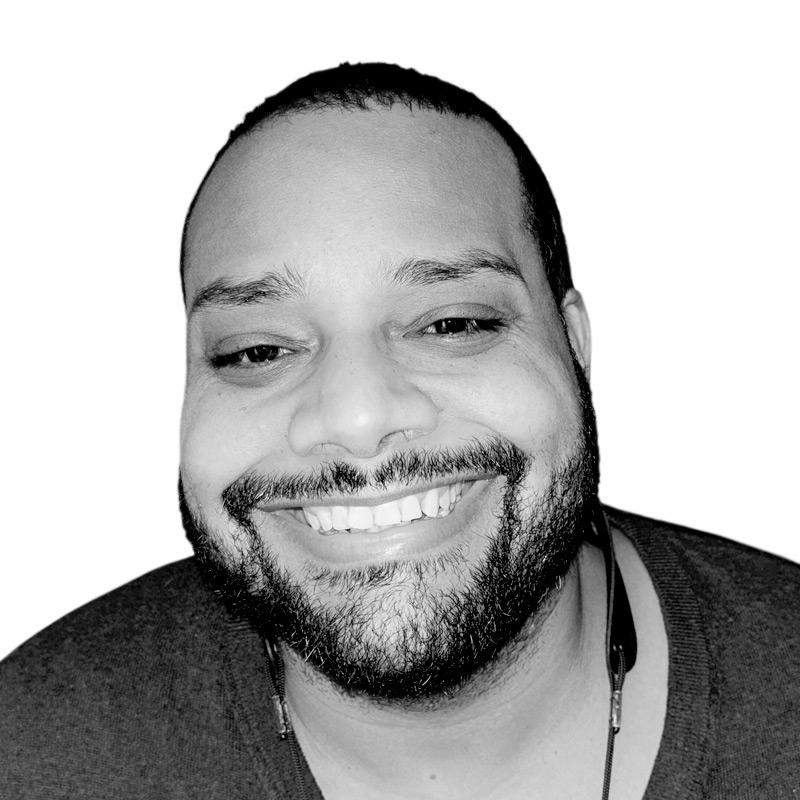
Presidential candidates from two political generations clashed in a divisive exchange in the Democratic presidential primary debate on September 12 when Julián Castro mocked Joe Biden with a quip about the former vice president’s wavering promises on “Medicare for choice.” “Are you forgetting already what you said just two minutes ago?” Castro, 45, snapped at Biden, 76, in what appeared to be an attempt to ridicule Biden’s age.
During a programming break, Rahm Emanuel (of all people) described Castro’s behavior in the exchange as “mean and vindictive.” Biden’s critics underscored his inability to defend his proposals under scrutiny. Worse yet, Biden struggled to defend himself. He stammered in response to Castro until Pete Buttigieg, mayor of South Bend, Indiana, intervened and said, “This is why presidential debates are becoming unwatchable.” Castro, who served alongside Biden and Emanuel in Barack Obama’s administration as secretary of housing and urban development, responded to Buttigieg by ridiculing Biden’s defenders, too. “It’s an election,” Castro said. Notably, the crowd at Texas Southern University cheered Castro’s attacks on Biden.
Fourteen million viewers tuned into the debate to watch 10 candidates hassle for nearly three hours about the future of the Democratic Party. But the boldest vision of that future is being put forth by Vermont Senator Bernie Sanders, the 78-year-old socialist who has overhauled the Democratic agenda. Biden, the party’s elder statesman, remains the front-runner in the race. Biden and Sanders have drawn great contrast between the old-school progressives and the young leftists, respectively. Massachusetts Senator Elizabeth Warren, a 70-year-old, left-wing reformist, has overtaken Sanders and narrowed Biden’s lead in recent polling as most other challengers have languished. For the past nine months, Castro, Buttigieg, 37, and Beto O’Rourke, 46, have struggled to upstage the septuagenarians.
Castro and Buttigieg disagree about decorum. O’Rourke splits the temperamental difference between them. He’s declined to attack Biden or Sanders and prefers to antagonize Trump instead. So far, O’Rourke has overtaken no one in the polls. The former representative from Texas once fascinated the party and threatened to upset Biden’s front-runner status. O’Rourke was a late entry to the race and briefly upstaged senators—Sanders, Warren, Kamala Harris, Cory Booker, and Amy Klobuchar—who have spent the last decade plotting for the presidency. But O’Rourke has polled no higher than 6 percent for the past four months. He sometimes polls lower than the New York businessman Andrew Yang, 44.
O’Rourke’s key weaknesses as a presidential candidate emerged last year during his unsuccessful challenge of Texas Senator Ted Cruz. In Texas, O’Rourke excelled as a strategist, a fundraiser, and a speaker, but he struggled in the debates with Cruz. O’Rourke languished in the first 2020 Democratic presidential primary debates: “My speech is choppy, my words are stilted, and my field of reference just shuts down,” he recently told Bill Simmons. The other candidates, especially Buttigieg, have each taken turns displacing O’Rourke in the primetime spotlight. Even the season’s most hopeless candidates—Eric Swalwell, Tim Ryan, John Hickenlooper, and Michael Bennet—exceeded O’Rourke in speaking time in the first two debates. Buttigieg exceeded O’Rourke in eloquence; Castro, a fellow Texan, exceeded O’Rourke in presenting a generational contrast with Biden. In the 2020 debates, Castro sometimes seems to regard O’Rourke as his fledgling nephew.
In March 2019, weeks before he launched his presidential campaign, O’Rourke marked the “exploratory” phase of his presidential campaign with rock-star whimsy. “Man,” he told Vanity Fair, “I’m just born to be in it.” O’Rourke entered the race with a glad-handing frivolity which rendered him irrelevant in the campaign’s showdown between neoliberalism and socialism. In the first two debates, O’Rourke struggled to situate himself in disagreements about left-wing proposals, including “Medicare for all,” which he sheepishly opposed for unclear reasons. “In a mere two years,” Jacobin noted, “the former Texas congressman has gone from vocally championing Medicare for All to bizarrely calling the single-payer policy ‘too ideological.’”
From his district in El Paso, O’Rourke embodied a progressive rebellion. On the debate stage in Miami, O’Rourke embodied surrender. “If someone proposed a ‘radical’ idea called public education today,” New York City mayor Bill DeBlasio warned in the second debate, “Beto would try to warn us that 180 million Americans would be kicked out of their schools.” In his ambivalence, O’Rourke aspired toward uncomplicated praise and universal appeal. He was youthful. He was telegenic. He was conciliatory. He was doomed.
Tragedy caused O’Rourke to abandon his earlier course. On August 3, 21-year-old Patrick Crusius killed 22 people with a semi-automatic rifle—an AK-47 clone—at a Walmart Supercenter in El Paso, O’Rourke’s hometown and former district. Less than an hour before the shooting, Crusius uploaded his manifesto online, which described “the Hispanic invasion of Texas” as his main motivation. “I am simply defending my country from cultural and ethnic replacement brought on by an invasion,” Crusius wrote. Among the shooter’s 22 casualties in El Paso, eight were Mexican citizens. Prosecutors are seeking the death penalty for Crusius. Four weeks later, there was another shooting in O’Rourke’s former district. Seth Aaron Ator, a disgruntled truck driver, shot and killed seven people on Interstate 20 between Midland and Odessa, Texas, before local police shot and killed Ator in a nearby parking lot.
O’Rourke suspended his 2020 presidential campaign for two weeks immediately following the shooting to return to El Paso and meet with mourners. While there, he made a plea to national media after a local reporter asked him about Trump’s influence on right-wing terrorists. “What do you think? You know the shit he’s been saying. He’s been calling Mexican immigrants rapists and criminals,” O’Rourke snapped as the TV news crew surrounded him. “Members of the press,” O’Rourke asked, “What the fuck?”
The “fuck” heard ‘round the campaign trail has, in recent weeks, redefined O’Rourke’s presidential candidacy. He’s become the season’s most indignant candidate, though Castro challenges O’Rourke for that title in debates. Indeed, O’Rourke and Castro vent their youthful impatience in different directions: Castro in his contempt for Biden; O’Rourke in his contempt for Trump. Hours before last week’s debate, ABC News warned the candidates against swearing on a primetime TV broadcast. Defiantly, O’Rourke issued the night’s most passionate left-wing pronouncements about reparations and gun control. “Hell, yes, we’re going to take your AR-15, your AK-47,” O’Rourke told the audience in response to a moderator’s question about gun buyback programs, “and we’re not going to allow it to be used against your fellow Americans anymore.” Shortly before the debate began, O’Rourke tweeted a photo of a semi-automatic rifle with a caption, “Beto has a ban for that,” and a link to his presidential campaign’s fundraising page.
In El Paso, O’Rourke described Trump’s agenda as “the end of an America where every single one of us can belong and have a future,” and here he confronted Trump with an intensity which most other Democratic candidates have avoided as they tour Iowa and New Hampshire. “If, at this moment, we do not wake up to this threat,” O’Rourke warned, “then we, as a country, will die in our sleep.” Lately, O’Rourke strives to exceed all other challengers in his outrage about Trump’s bigotry. In the most recent debate, O’Rourke called Trump “a white supremacist” who “poses a mortal threat to people of color.” He was forceful in his left-wing pronouncements. “We can mark the creation of this country not at the 4th of July, 1776,” O’Rourke intoned, “but August 20, 1619, when the first kidnapped African was brought to this country against his will.”
Despite his rebellious reinvention, O’Rourke keeps losing ground to Buttigieg, who has stolen O’Rourke’s thunder in every key measure: polling, fundraising, debates, press, and staffing. Where Beto stirs, Buttigieg soothes. As the youngest candidate in the race, Buttigieg might ideally embody some big, generational shifts in his party’s outlook. Instead, Buttigieg embodies the old Clintonian model—the passionate red-state progressive who speaks about God, civility, and pragmaticism. In recent polling, Buttigieg exceeds Booker and Klobuchar and narrowly trails Harris (all in their 50s). Buttigieg is hovering between 5 and 10 percent support in the primary field, but struggles to displace Biden, Sanders, and Warren at the top. He, too, fails, as O’Rourke once failed, to appease the most passionate factions in his party’s ideological referendum.
If Buttigieg has emerged as the Democratic Party’s freshest and friendliest face, then O’Rourke seems to have decided to become the unruly Gen Xer—but really, the arch-Millennial candidate—in a campaign dominated by the oldest candidates. Indeed, O’Rourke and Buttigieg have cultivated a feud in the past week. On Sunday, Jake Tapper asked Buttigieg to assess O’Rourke’s pledge to confiscate semi-automatic weapons from U.S. civilians. “Did Beto O’Rourke say something that’s playing into the hands of Republicans?” Tapper asked. “Yes,” Buttigieg responded. Hours later, O’Rourke seized on a video clip from Buttigieg’s conversation with Tapper. “Leaving millions of weapons of war on the streets because Trump and McConnell are [quoting Buttigieg] ‘at least pretending to be open to reforms,’” O’Rourke tweeted. “That calculation and fear is what got us here in the first place. Let’s have the courage to say what we believe and fight for it.” In his 2018 midterm campaign against Ted Cruz, O’Rourke proudly brandished his “F” rating from the NRA. In 2020, O’Rourke now appears to be gunning for an “F-minus.”
O’Rourke seems to be rediscovering the righteous qualities, verging on petulance, which allowed him to cut such a vividly modern figure in the 2018 midterms. On the issue of gun control, he’s found an issue that appeals to the left wing of the party, giving him a pretext to seek the presidency as defiantly—and spectacularly—as he did the Texas Senate seat. O’Rourke might at least overtake Buttigieg, who admitted his failings in managing a racial crisis after a white police sergeant fatally shot a black man in South Bend in June. In the presidential contest, Buttigieg raises more money than O’Rourke, and he also exceeds his youngest rivals, O’Rourke, Castro, and Yang in most polls. These men will continue to haggle over their common 10-percent share in the primary. Castro will attack Biden. O’Rourke will attack Trump. Buttigieg will appease everyone else. They may all together, in some capacity, conquer the Democratic Party someday. For now, however, Biden, Sanders, and Warren share an old-fashioned advantage—seniority—in a nonetheless spry and irreverent contest.

